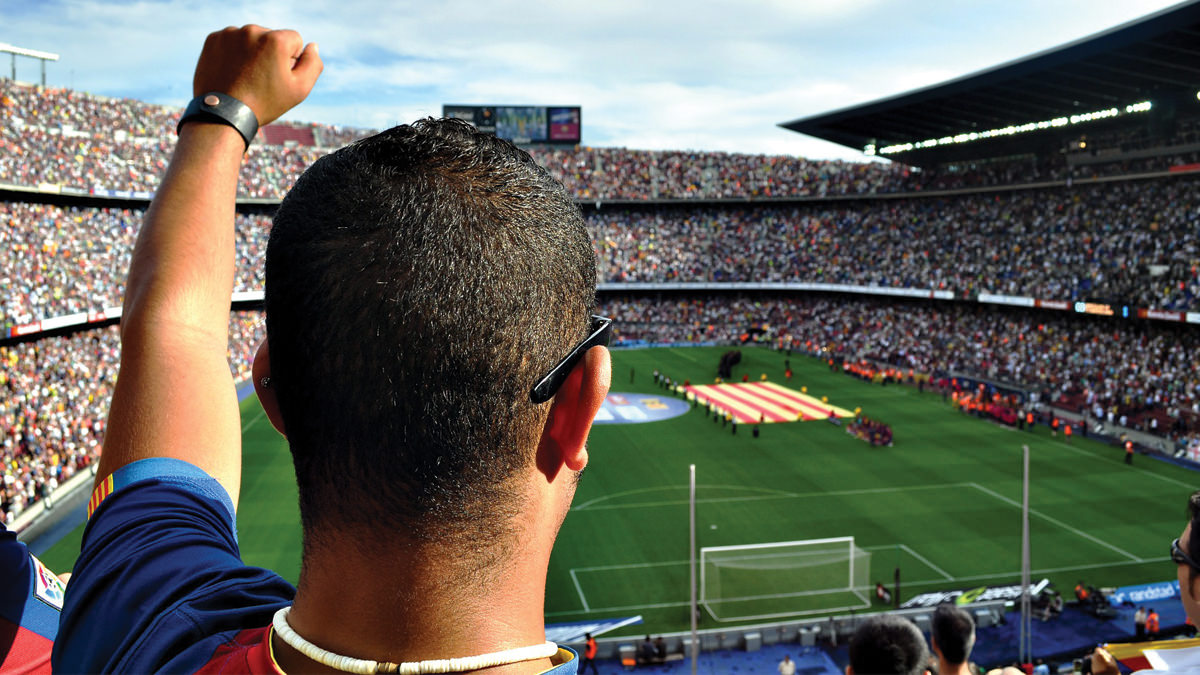
The roar of thousands of fans, the thrill, and the excitement of the announcer shouting your team’s “Goal!”, is all part of the excitement of watching a Football match. For many, being a sports fan goes beyond attending games and supporting players to living and breathing their beloved Football team. While many say this is a harmless and healthy lifestyle to even be encouraged, there are those fans who go too far and become fanatical. Where can the line be drawn between a lovable passion and one that is harmful? This was captured in recent BBC Documentaries and articles that examine the phenomena known as ‘Hooliganism’.
Hooligans too often cross the legal and societal line when it comes to being Football fans and adopt a group mentality mindset that has led to such reprehensible crimes as starting fights, rioting, racist behavior, and alienating family and friends (whether because of their behavior, that their friends/family are not team supporters, or rival fans). The seriousness has gone so far that the Football Association (FA) as well as World Cup European countries hosting games have banned those flagged as hooligans from attending. Fans were even observed doing Nazi salutes as well as other racist signs and epithets. In fact, this stance was toughened when over 1,200 English supported were prevented from attending the 2018 World Cup in Russia.
These bans range anywhere from 6 months up to five years, and come with appropriate charges based on the crime. Violence and Riots can cause immense tragedy as captured in the BBC Documentary ‘Hooliganism: The Untold Story’, and is reflected in such events like the 1989 Hillsborough Disaster where 96 fans sadly died in the chaos. Emotions run high during major Football matches, especially when there are rival teams. Add to this a packed and crowded stadium, alcohol and a gang-like mentality as fuel, and a handful of bad apple hooligans, and this is a recipe for disaster. Even when rival supporters are separated in the stadium, there is no guarantee that fights will not break out or hurtful racist chants will not be hurled at players or other supporters. FIFA, other organizations, and countries therefore takes a tight stance against Hooliganism. The fact is that these Hooligan extremists ruin the game for the majority of innocent fans who want to enjoy an exciting match. It just takes a group of twenty, or even less, to cause a fight and unfortunately regular fans are caught in the crossfire.
Rose Slots in particular also has a positive message, being geared toward a women audience, and this is perfect for sponsoring females in sports. Numbers show that the majority of Hooligans are young male, so encouraging greater attendance of middle-aged women at sports matches via an advertisement to the site’s main audience, for instance, may be enough to tone down the chance of violence, racial slurs, or other hooligan acts. A more diverse fan base thins out the number of radicals at matches and, especially with a slightly older female crowd, the youth will be reluctant to be verbally or physically abusive in the presence women that could be their aunts or mothers. While fierce competition obviously exists in all sporting matches, a more family friendly environment helps discourage the hooligan hotheads who hide behind the guise of being a sports fan to cause chaos.
Another argument is limiting the access or presence of alcohol at Football matches. Alcohol limits inhibitions and causes those who are pleasant fans when sober into brawlers when drunk. Alcohol bans and early starting times for matches (such as morning scheduled games) limits the influence of substances and hampers Hooliganism. Further, having tighter surveillance to prevent entry to those that visibly appear drunk or disorderly also is an important step to saving the spirit of Football. The French government has also urged other countries to follow their example of limiting alcohol in Hooligan hotbed areas around the city as the violence and racism can occur both inside and out of the stadium. However, there are those that claim fans always find a way around the ban – by sneaking in alcohol or relying on drug use instead – and may actually become angrier at being denied access. It is often the classic conundrum that a perceived solution becomes the problem.
For instance, many FIFA Football or sports video games allow chatting live with other players (strangers or friends) via headsets as they face each other virtually. For some, this is fun and releasing tension. Light teasing and jabs are literally ‘fair game’, yet there are those video game players that are nasty with insults. In this latter occurrence, the user(s) can be reported by the virtual community or the player. This is a great illustration of what can be employed at real Football matches. The organization and countries can take actions to limit Hooliganism, yet the behavior and Hooligans can slip through and is only seen in the middle of a match or immediately afterwards (often when it is too late to stop).
Therefore, as with users on video games, innocent fans can be a huge benefit by alerting staff and reporting racist or abusing Hooligans. This has been called a ‘Rapid Response’ tactic. Rather than treat the problem when it happens, it is much better to prevent it altogether. Creating a healthy fan community, through softer methods such as advertisement (via online caino games sites, for instance) that encourage good fans, video games that release tensions, or through actually keeping a close eye out on disruptive behavior, helps keep Football as a safe and beloved game for everyone.
Comments